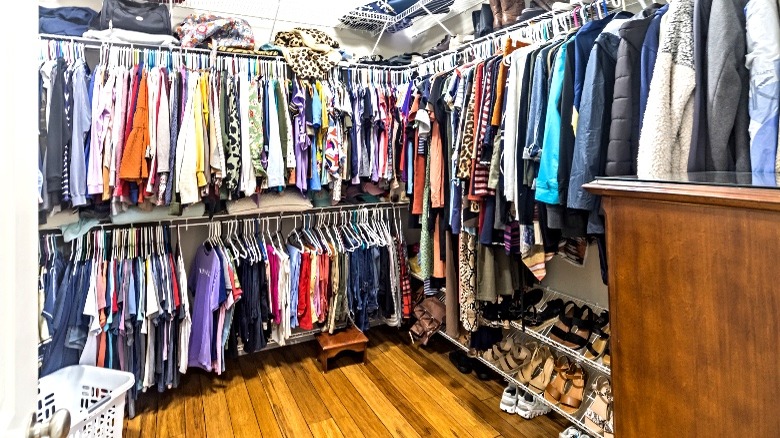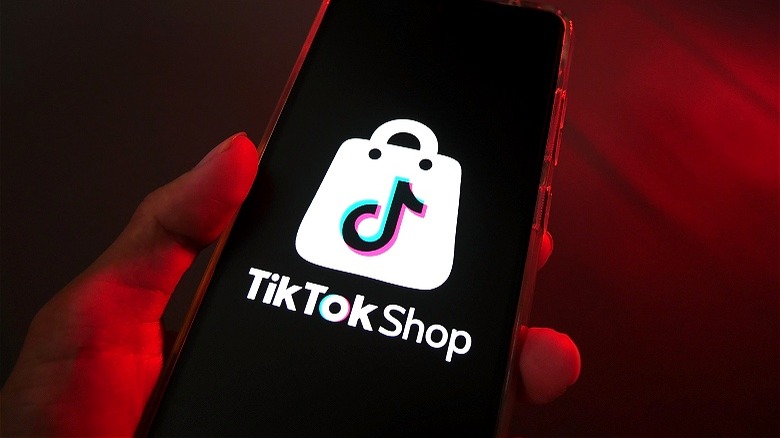You've Been Warned: This Sneaky Shopping Mistake Will Cost You
At some point, you've likely experienced the strong pull that a sale item has on your wallet. Do you truly need that pair of boots at Macy's that were originally $200 and are now discounted to $50? Not necessarily. But will you feel like you're missing out on a great opportunity if you don't make the purchase? Absolutely.
It's undeniable that sales are exciting. Whether it's an unexpected fashion splurge or being able to purchase your preferred laundry detergent for "buy one, get one 50% off" at the grocery store (which has various sneaky ways to get you to spend more), there's a sense of accomplishment that comes with obtaining something at a lower cost than others who paid full price.
Still, while one may think they're being frugal by taking advantage of a limited-time sale, it actually may not be in their best financial interest. In fact, spending money on something just because it's now on discount is a sneaky shopping mistake that can cost consumers both money and space if it's done too frequently.
It can lead to buyer's remorse
Let's return to the intro's example of the $200 boots on sale for $50 at Macy's. When you left your house (where you already have several barely worn pairs in boxes), you had no intention of buying more shoes. Though the steep discount gives the illusion of saving money, the reality is you spent an unplanned $50 on something you don't need. In fact, it's likely that you'll soon regret the spur-of-the-moment purchase. A 2023 study by Google/Ipsos found that 42% of Americans admitted to buying something on sale and later wishing they hadn't. (To help with such buyer's remorse, try practicing this 24-hour rule that's a true money-saving hack.)
The next time you're tempted by a sale, take a pause and ask yourself a few things. Do you really need that item, or just want it because it's cheaper than usual? Would you still be interested if it was full-price? While the boots can probably be left on the shelf under this rationale, something like the "buy one, get one 50% off" laundry detergent may be a good deal because it will eventually be used. "There's actually a cost to owning stuff that you don't need," Pauline Wallin, a licensed psychologist based in Camp Hill, Pennsylvania, told Yahoo Life. "It takes up space and gets in the way. Once you've owned it for a while, your thrill of procuring the item will fade, eclipsed by annoyance at having to store it and move it."
The psychology behind buying stuff on sale
Feelings of regret and/or disappointment may come after an unnecessary sale purchase, but there's more at play than a lack of willpower. The urge to take advantage of a discount is part of our human nature, with dopamine (the "happy hormone") being released and giving us a sense of satisfaction when we score something that others haven't.
Speaking with Yahoo Life, LaNail R. Plummer, a licensed therapist and chief executive officer of Onyx Therapy Group, compared the sales sensation to "playing a game and winning," while Pauline Wallin remarked that shopping isn't rational. "If it were," she said, "we'd buy strictly what we need." Additionally, in our current technology-driven world, being tempted by a sale isn't limited to a brick-and-mortar store. Social media users, particularly those on TikTok, are inundated with influencers pushing products at discounted rates.
Do you need a new curling iron, a back massager, or concealer? Probably not. But influencers are good at what they do and make viewers feel like it would be crazy not to take advantage of the deal. Clicking "purchase" through TikTok Shop not only brings that instant rush of dopamine, but also allows the customer to feel a sense of belonging to the many other TikTok users who also purchased this trending item. EMarketer (via Adweek) predicts that social commerce sales will reach $144.5 billion by 2027.


